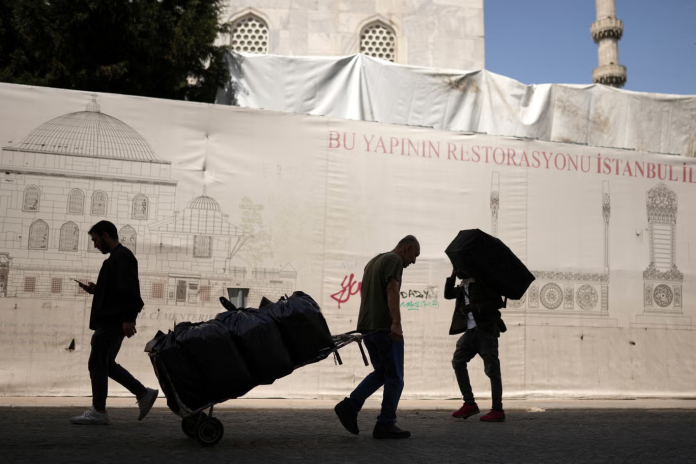Turkey’s central bank has raised its key interest rate by 3.5 percentage points to 46%, halting a three-month easing cycle as it grapples with persistent inflation, political instability following the arrest of Istanbul’s mayor, and global trade tensions, according to AP News.
The Monetary Policy Committee (MPC) also adjusted overnight lending and borrowing rates to 49% and 44.5%, respectively, signalling a renewed commitment to orthodox monetary policy.
The decision, which surprised markets, follows weeks of financial turbulence triggered by the arrest of opposition leader Ekrem İmamoğlu, Istanbul’s mayor, in March. His detention sparked protests and a 12% plunge in the Turkish lira, forcing the central bank to sell $50 billion in reserves to stabilise the currency.
The lira rebounded modestly post-announcement, trading at 38.10 against the dollar, but remains fragile.
The MPC cited “growing protectionism in global trade” and retaliatory tariffs–notably the US-proposed 20% levy on EU goods–as risks to disinflation, warning that these could disrupt commodity prices and capital flows. While inflation eased to 38.1% in February, core goods inflation is expected to rise slightly in April due to financial market volatility.
Political pressures and economic challenges
The rate hike marks a stark reversal from President Recep Tayyip Erdoğan’s long-standing unorthodox stance that high rates cause inflation. His 2023 appointment of a new economic team initially saw rates soar to 50%, followed by gradual cuts until March 2024.
However, renewed political crises and Erdoğan’s historical interference in monetary policy have eroded investor confidence. Financial expert Iris Cibre praised the move as a “credibility boost” for the central bank, noting it demonstrated policymakers’ ability to act independently despite political pressures.
Yet challenges persist. A 2% credit growth cap threatens businesses, risking higher unemployment and prolonged economic slowdown. The central bank’s net reserves (excluding swaps) also fell by $34.5 billion amid foreign outflows and domestic FX demand, prompting liquidity management measures such as suspending one-week repo auctions.
US tariff uncertainties and the ECB’s simultaneous rate cuts to 2.25% (to counter trade-related growth risks) complicate Turkey’s external balancing act. Analysts warn that the 46% rate may not suffice to stabilise the lira long-term, given Turkey’s history of dollarisation and inflation volatility.
